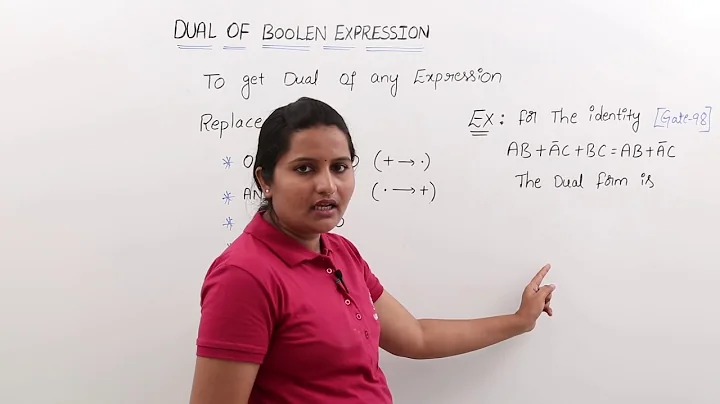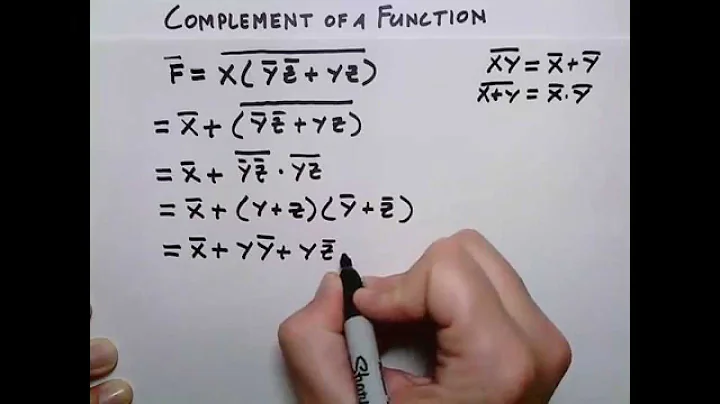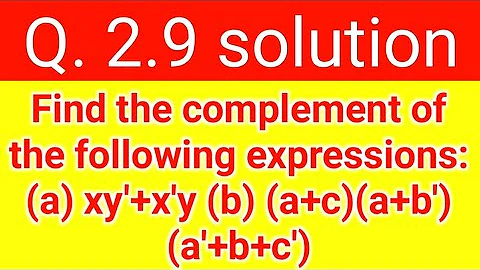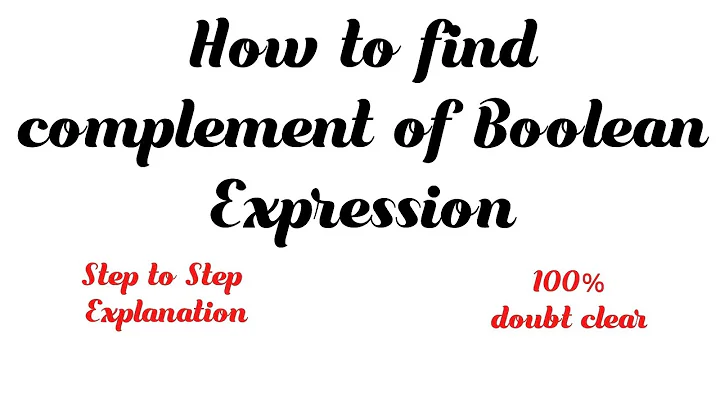What's the difference between the dual and the complement of a boolean expression?
Solution 1
Boolean duals are generated by simply replacing ANDs with ORs and ORs with ANDs. The complements themselves are unaffected, where as the complement of an expression is the negation of the variables WITH the replacement of ANDs with ORs and vice versa.
Consider:
A+B
Complement: A'B'
Dual: AB
Solution 2
"The Dual of an identity is also an identity. This is called the Duality Principle". A Boolean Identity is X+0=X or X+X=X. There's lots of them. Duals only work with identities. To find the Dual you switch operators (+ & .) and switch identity elements (0 & 1, if there are any 0's and 1's) to change X+0=X to X.1=X and to change X+X=X to X.X=X which creates new identities which are also valid. There is no meaning to creating a Dual from an arbitrary expression like X'Y+XY'=1. A Complement depends on an arbitrary expression like f1(x,y)=X'Y+XY', the complement of which would be f2(x,y)=(X+Y').(X'+Y) which if you plug values into f1(x,y) will give you the exact opposite results if the same values are plugged into f2(x,y). A Complement is formed by negating each variable and switching each operator.
Solution 3
suppose the function f = {a, c', h', i', l, l, e, s, 1, 0}
f complement will be f = {a', c, h, i, l', l', e', s', 0, 1}
f duality will be f = {a, c', h', i', l, l, e, s, 0, 1} note : for duality literals will be as it is. only OR gates replaced by AND gates and vice versa and 1 replaced 0 and vice versa
but in case of complementation along with gates and values, literals will be complemented.
here complete example : if we want to get compliment of x'+y'
complementation says : (x')'.(y')'
duality says : x.y
Solution 4
In finding dual, we replace
- AND with OR and vice versa
- 0 with 1 and vice versa
In finding complement, in addition to above two, we also need to replace
A with A' and vice versa (that is, variables with their complements)
Solution 5
In addition to what is already said.
It is also important to note that the dual of a 1 is 0 and vice versa,which is similar to the complement operations.
for example:x+1 = 1
Dual is:x.0 = 0
Related videos on Youtube
jantristanmilan
Updated on February 04, 2020Comments
-
jantristanmilan over 4 years
Its the same thing right? Or is there a slight difference? I just wanna make sure I'm not misunderstanding anything.
-
paulsm4 almost 12 years"A complement is a self-dual operation": en.wikipedia.org/wiki/Boolean_algebra
-
Raymond Chen over 6 yearsI'm voting to close this question as off-topic because it is not (yet) a programming question.
-
-
Anil about 7 yearsHi, Suppose we have a statement as,
A + A' = 1, then its complement would beA' . A = 0, and dual would beA . A' = 0,which is false. Can you please explain this? -
 JAustin about 6 yearsAll of these statements are true. A AND NOT A is always false.
JAustin about 6 yearsAll of these statements are true. A AND NOT A is always false. -
RS1 almost 5 yearsDuals also changes 1's to 0's and vice versa. Does this mean that taking dual also results in complement of overall value? For example, if A+B=0, then complement will be A'.B'=1 and dual will be A.B=1. Both will make overall value be 1 which is complement of original value.
-
 X10D about 4 yearswhat are practical uses of complements and duals?
X10D about 4 yearswhat are practical uses of complements and duals?






